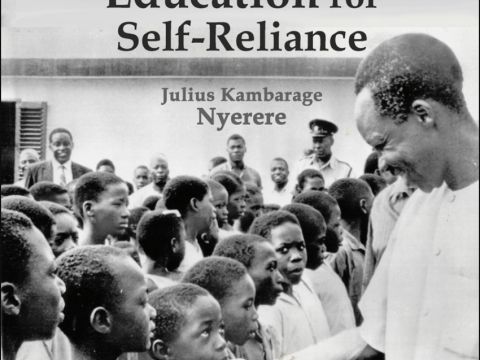Education for Self-Reliance, Julius Nyerere (1967)
Julius Nyerere (1922-1999) was a Tanzanian anti-colonial activist, educator, politician and political theorist who served as Tanzania's first president from 1964 to 1985. A proponent of African nationalism and African socialism as a result of his time as a teacher and his study of history and political economy, he promoted the political philosophy of Ujamaa ('fraternity' in Swahili) in Tanzanian legislature following Tanzania's independence from the British.
Education for Self-Reliance (1967) was a policy written by Nyerere with the goal of re-examining the Tanzanian educational system, critiquing the system inherited from Great Britain and arguing that it did not sufficiently meet the needs of young Tanzanians, and was instead "motivated by a desire to inculcate the values of the colonial society and to train individuals for the service of the colonial state." He discusses a need to make it more relevant to Tanzanian society (ie. integrating educational skillsets to best acknowledge Tanzania's rural and agricultral socioeconomic setting), cultivating a culture of cooperative self-reliance through education to eliminate socioeconomic inequalities in the country.
Nyerere concludes his reflection on his educational policy with the following: "Education provided by Tanzania for the students of Tanzania must serve the purposes of Tanzania. [...] It must encourage the development of a proud, independent and free citizenry which relies upon itself for its own development, and which knows the advantages and the problems of co-operation."
You can find the text on Google Scholar.
Source image taken from the Maktaba Online Library.
